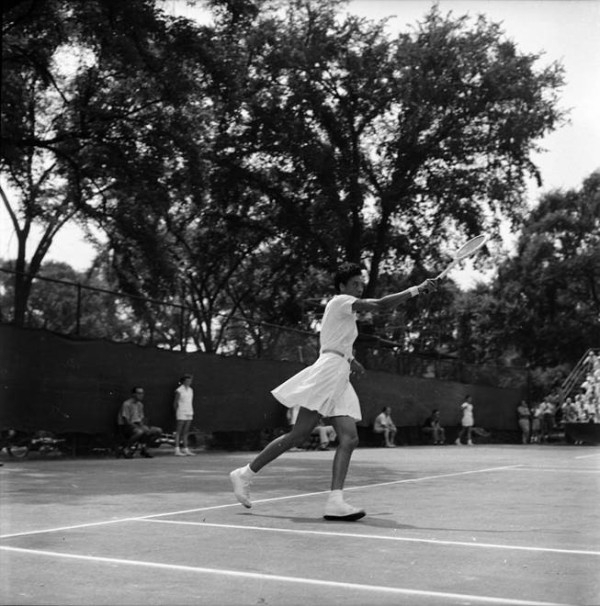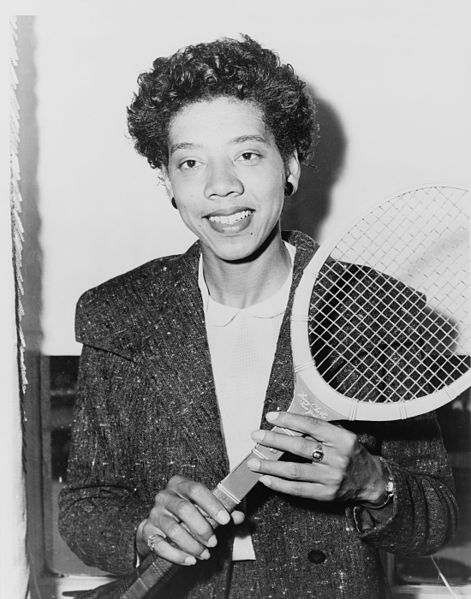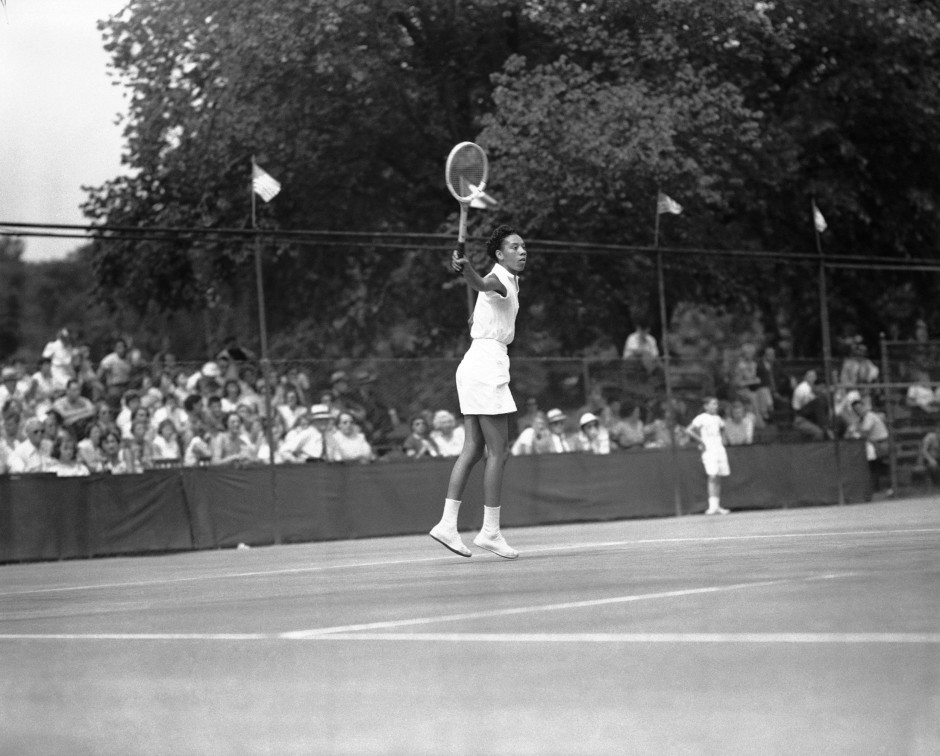Althea Gibson, one of America’s legendary tennis players, broke racial barriers in an era when racism was rampant and African Americans were second-class citizens. Gibson’s rise to stardom, and her abject tumble into penury, are charted in Althea, an illuminating documentary scheduled to be broadcast by PBS’ American Masters series on September 4 at 9 p.m. (check local listings).
That such a gifted athlete could have fallen so low, due to ingrained Jim Crow discrimination, is a harsh commentary on American democracy.

Gibson was born into poverty in Silver, South Carolina, a southern state where blacks were denied rights and privileges that whites took for granted. Like many blacks in the region, Gibson’s parents were impoverished sharecroppers. The family migrated to New York City when Gibson was three years old, settling in Harlem, an all-black neighborhood.
She gravitated to lawn tennis through paddle tennis, a popular sport on the rough streets of Harlem. Fred Johnson, a one-armed tennis coach, recognized Gibson’s talents and took her under his wing. He introduced her to two influential men in the community, both tennis enthusiasts, who would be instrumental in upgrading her game, educating her and preparing her for the white world.
Thanks to their assistance and encouragement, Gibson developed into the best female tennis player in American “negro” tennis, an imposing and graceful player who won every tournament she entered. Billie Jean King, one of the finest players of her generation, claims that Gibson had a presence on the court that intimidated opponents.
In 1950, she became the first black to play at the U.S. Open in Forest Hills, New York. She advanced to the final, losing to the reigning champion. Gibson’s achievement should not be underestimated. Tennis was a lily-white sport back then, and the clubs that hosted tournaments generally excluded blacks and Jews.
With a sports scholarship in hand, she earned an undergraduate degree at a university in Florida. Upon completing her studies, she won the French Open. Teaming up with Angela Buxton — a Jewish player from Britain by way of apartheid South Africa who had been a victim of bigotry — they captured the doubles title at Wimbledon.

At the apex of her career, Gibson won U.S. Open and Wimbledon titles in 1957 and 1958. Having reached the top of her game, she dropped out of tennis, unable to support herself on the amateur circuit, which paid little, even to stars like Gibson. If she had been white, she probably would have been able to survive financially. And if she had been born 30 years later, she could have been a multimillionaire from lucrative prize winnings and endorsements. There is even a suggestion that Gibson might have fared better, even as a black, had she been less reclusive and more outgoing and sociable.
Leaving tennis behind, Gibson became a golf pro. But she was never a champion-grade golfer. And she experienced the kind of blatant racism that would never be tolerated today.
Toward the close of her life, she ran into money problems and had to turn to Buxton and loyal fans for financial succor.
Though no civil rights activist, Gibson was a trailblazer who played a role in improving the lot of African Americans in the United States. It’s unfortunate that she paid such a heavy price for this stellar achievement.
